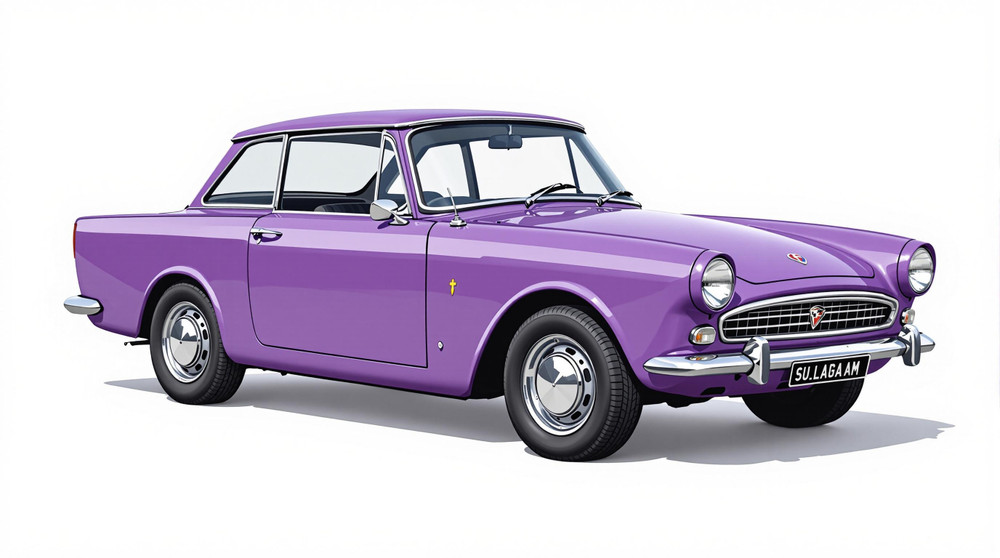Image of 1968 Sunbeam Alpine, Note: These illustrations use artistic license and may differ from actual historical models.
Performance Metrics
Fundamental Metrics
Emotional Appeal
MMP Rating
| Engine Specifications | |
|---|---|
| Engine: | 1.7L Inline 4 |
| Displacement: | 1725cc |
| Horsepower: | 93 hp |
| Torque: | 120 lb-ft |
| Compression Ratio: | 9.5:1 |
| Ignition System: | Electronic Ignition |
| Cooling System: | Water-cooled |
| Performance Specifications | |
| 0-60 Time: | 13.6 seconds |
| 1/4 Mile Time: | 19.6 seconds |
| Top Speed: | 105 mph |
| Transmission and Drive | |
| Drive Type: | RWD (Rear Wheel Drive) |
| Transmission Type: | 4-speed manual |
| Fuel and Efficiency | |
| Fuel System Type: | Carburetor |
| MPG: | 25-30 MPG |
| Dimensions and Brakes | |
| Brakes: | Disc brakes front, drum rear |
| Wheelbase: | 96 inches |
| Weight: | 2,200 lbs |
Note: Specifications for classic cars are given to the best of our ability, considering the limited and variant data available.
Unveiling the Charm of the 1968 Sunbeam Alpine
The 1968 Sunbeam Alpine emerges not merely as a car but as a testament to British motoring elegance. Born from the assembly lines of the Rootes Group, this classic convertible was designed to capture hearts with its blend of performance and style. As a vehicle that found its niche among enthusiasts during the swinging sixties, the Alpine carved its own path in an era dominated by automotive giants. A notable moment in its storied history is its Hollywood cameo, where it starred alongside Sean Connery in the James Bond film "Dr. No," cementing its status as an icon of cool.
Design and Innovation: A Glimpse into British Craftsmanship
The exterior of the 1968 Sunbeam Alpine was a symphony of sleek lines and subtle curves, exuding a sporty yet sophisticated aura. Its long hood and short rear deck profile were hallmarks of classic sports car design. Inside, drivers were greeted with a functional and uncluttered dashboard, adorned with Smiths gauges and an array of toggle switches. The use of materials such as vinyl and leatherette provided a durable yet comfortable cabin experience. Technologically, it boasted innovations like disc brakes at the front—a feature not universally standard at the time. Color options ranged from vibrant reds to deep blues, with Embassy Black being a particularly sought-after hue. The roadster body style was iconic, often paired with optional hardtops for versatility.
Historical Significance: More Than Just a Pretty Face
The Sunbeam Alpine's impact on automotive design was subtle yet significant. It demonstrated that elegance could be achieved without extravagance, influencing a generation of sports cars that prioritized balance over brute force. Its popularity among celebrities and in motorsports helped elevate the brand's status worldwide.
Performance and Handling: The Heartbeat of the 1968 Alpine
Underneath its bonnet lay a spirited 1.7-liter four-cylinder engine, propelling the Alpine to respectable top speeds and delivering a 0-60 mph sprint that could rival contemporaries. Handling was nimble, with drivers enjoying responsive steering and a suspension setup that managed to be both sporty and forgiving on less-than-perfect roads. The soundtrack of the engine provided an auditory thrill matched only by the wind rushing past during open-top jaunts.
Ownership Experience: Living with a Classic
The 1968 Sunbeam Alpine was versatile enough to serve as a daily driver or weekend showpiece. Its mechanical simplicity meant that maintenance didn't require specialized knowledge, making it an accessible classic for enthusiasts. While reliability was typical for its era, well-maintained examples could provide trouble-free motoring for years.
Fun Facts: The Alpine's Legacy in Pop Culture and Beyond
Beyond its cinematic exploits, the Sunbeam Alpine also found favor among racing circles for its tunability. While not without criticisms—some pointed out its modest power output compared to American muscle cars—it held records in endurance rallies and became a beloved choice for amateur racers.
Collector's Information: Investing in Nostalgia
Today, collectors cherish the 1968 Sunbeam Alpine for its charm and relative rarity, with values ranging significantly based on condition and provenance. Estimates suggest that several thousand units were produced during its run, but exact figures remain elusive. In terms of appreciation, well-preserved Alpines have seen steady growth in value, often fetching prices well into five-figure territory depending on their history and originality.
Conclusion: Embracing the Timeless Allure of the '68 Alpine
The 1968 Sunbeam Alpine stands as more than just another classic car; it is a symbol of an era where style met substance on equal terms. For those lucky enough to own one today, it offers not just a slice of automotive history but also an enduring legacy that continues to captivate enthusiasts around the world.
1968 Sunbeam Alpine Catalog of Parts
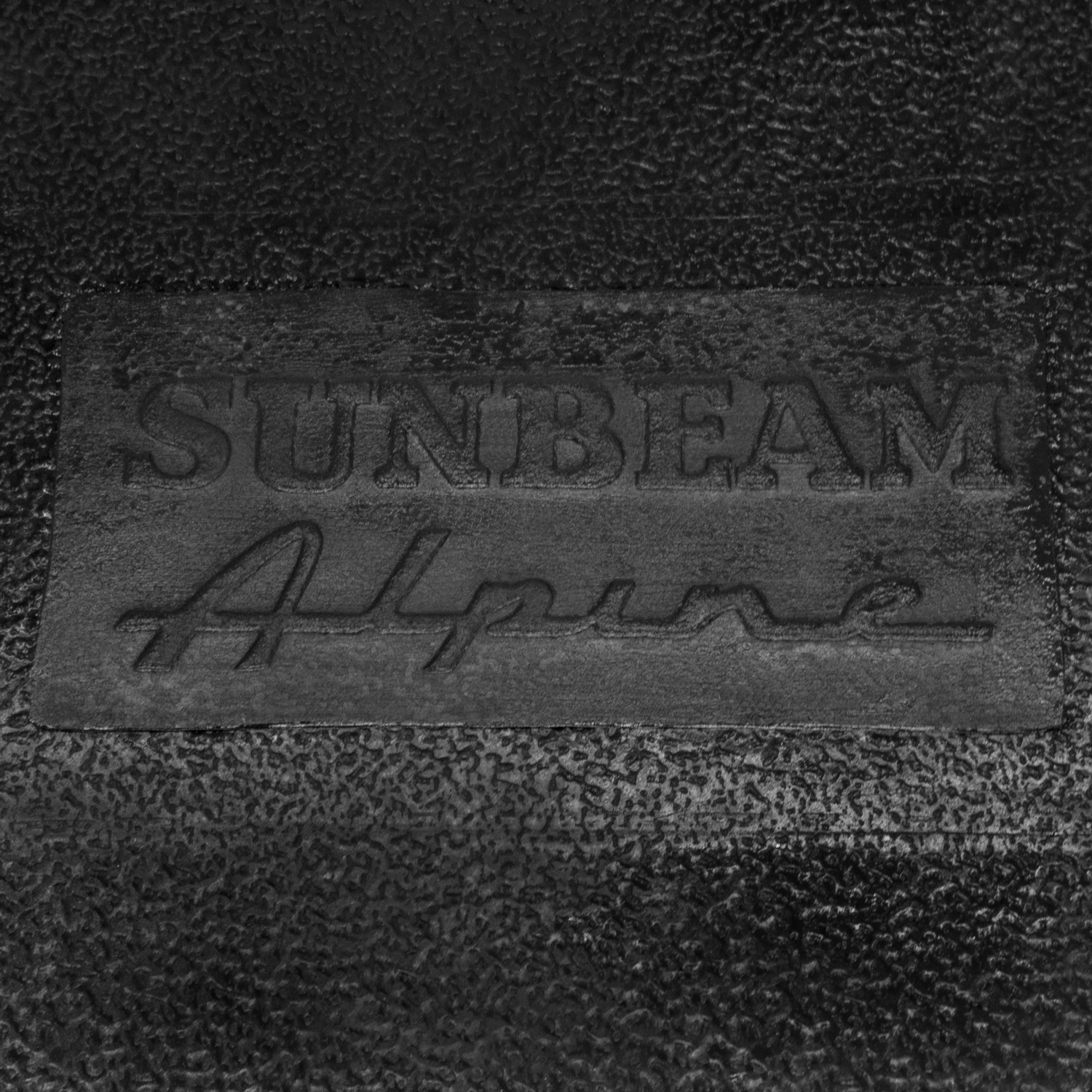 1968 Sunbeam Alpine Accessory Floor Mat - 12"X17"-AC 30Accessory Floor Mat - made of high quality black rubber with molded original emblem. Also designed to be sewn into new carpets. 12"X17", Each
1968 Sunbeam Alpine Accessory Floor Mat - 12"X17"-AC 30Accessory Floor Mat - made of high quality black rubber with molded original emblem. Also designed to be sewn into new carpets. 12"X17", Each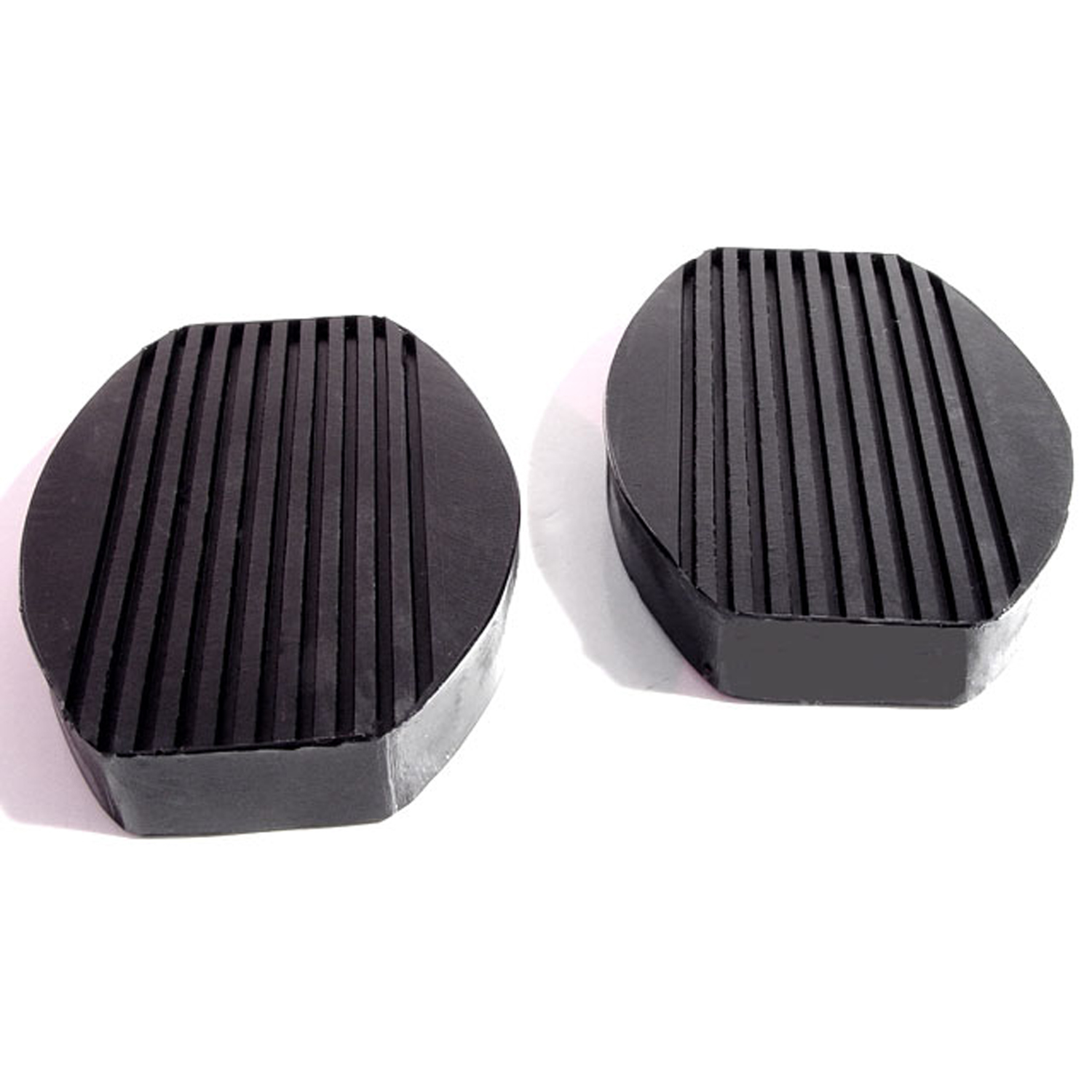 1968 Sunbeam Alpine Clutch and Brake Pedal Pads. 2-1/2" wide X 3-1/2" long-CB 82Clutch and Brake Pedal Pads. 2-1/2" wide X 3-1/2" long. Pair
1968 Sunbeam Alpine Clutch and Brake Pedal Pads. 2-1/2" wide X 3-1/2" long-CB 82Clutch and Brake Pedal Pads. 2-1/2" wide X 3-1/2" long. Pair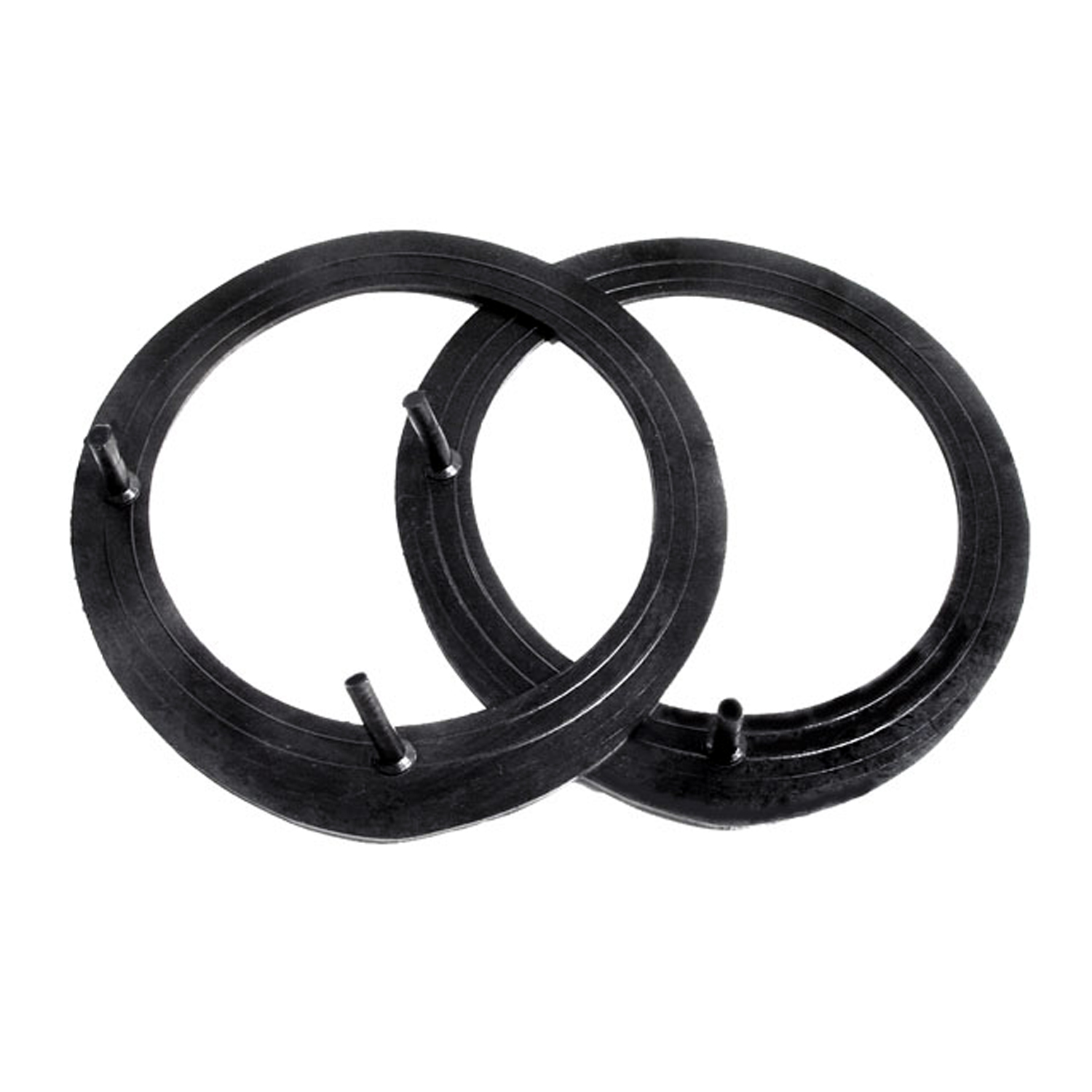 1968 Sunbeam Alpine Headlight Ring Seal. 8-3/8" O.D., 6-1/4" I.D. Pair-HR 4Headlight Ring Seal. 8-3/8" O.D., 6-1/4" I.D. Pair
1968 Sunbeam Alpine Headlight Ring Seal. 8-3/8" O.D., 6-1/4" I.D. Pair-HR 4Headlight Ring Seal. 8-3/8" O.D., 6-1/4" I.D. Pair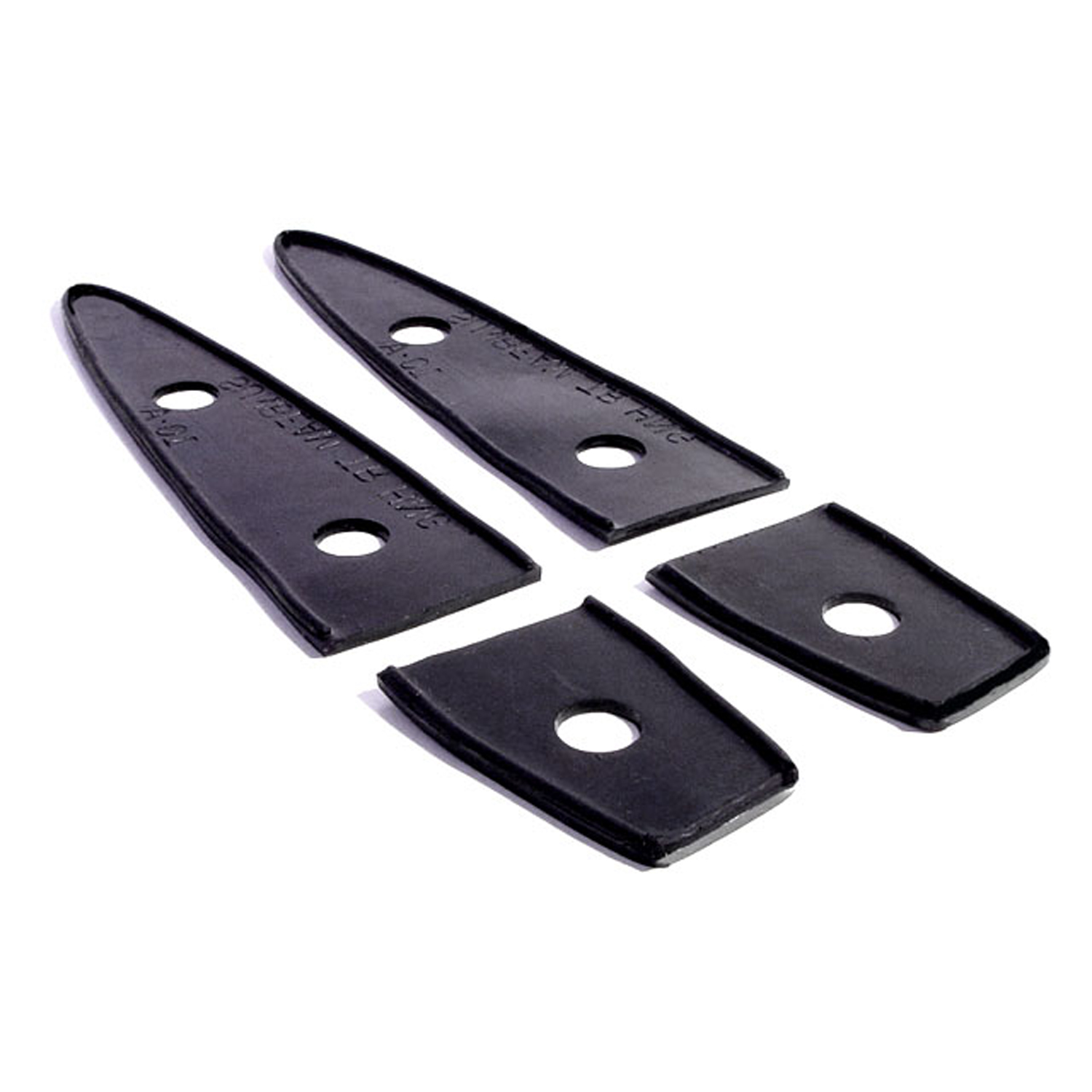 1968 Sunbeam Alpine Trunk Hinge Pads. 1-3/8" wide X 7-1/8" long-MP 10-ATrunk Hinge Pads. 1-3/8" wide X 7-1/8" long. 4-Piece Set R&L
1968 Sunbeam Alpine Trunk Hinge Pads. 1-3/8" wide X 7-1/8" long-MP 10-ATrunk Hinge Pads. 1-3/8" wide X 7-1/8" long. 4-Piece Set R&L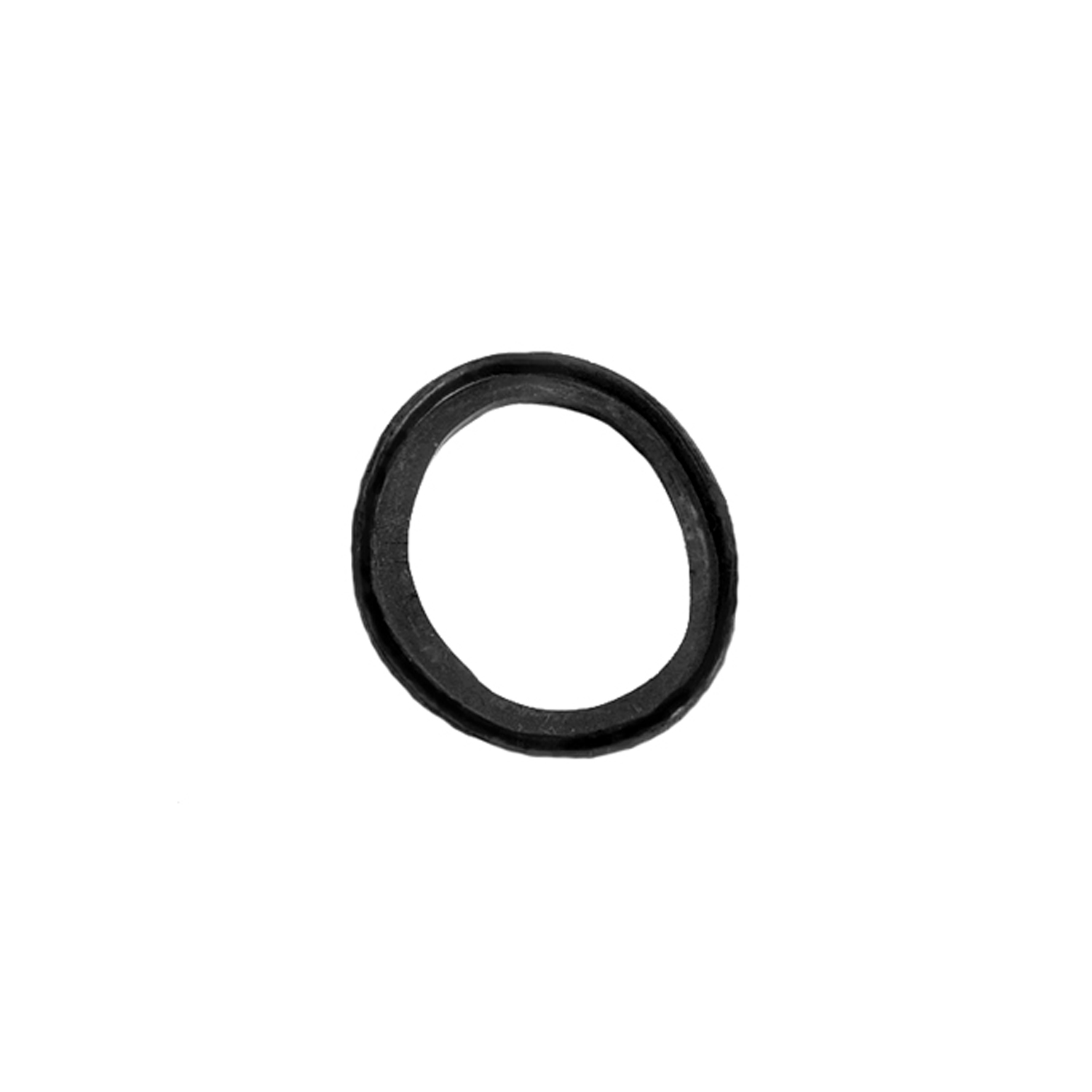 1968 Sunbeam Alpine Windshield Wiper Transmission Pad-MP 10-BWindshield Wiper Transmission Pad. 1-1/8" wide X 1-5/8" long. Each
1968 Sunbeam Alpine Windshield Wiper Transmission Pad-MP 10-BWindshield Wiper Transmission Pad. 1-1/8" wide X 1-5/8" long. Each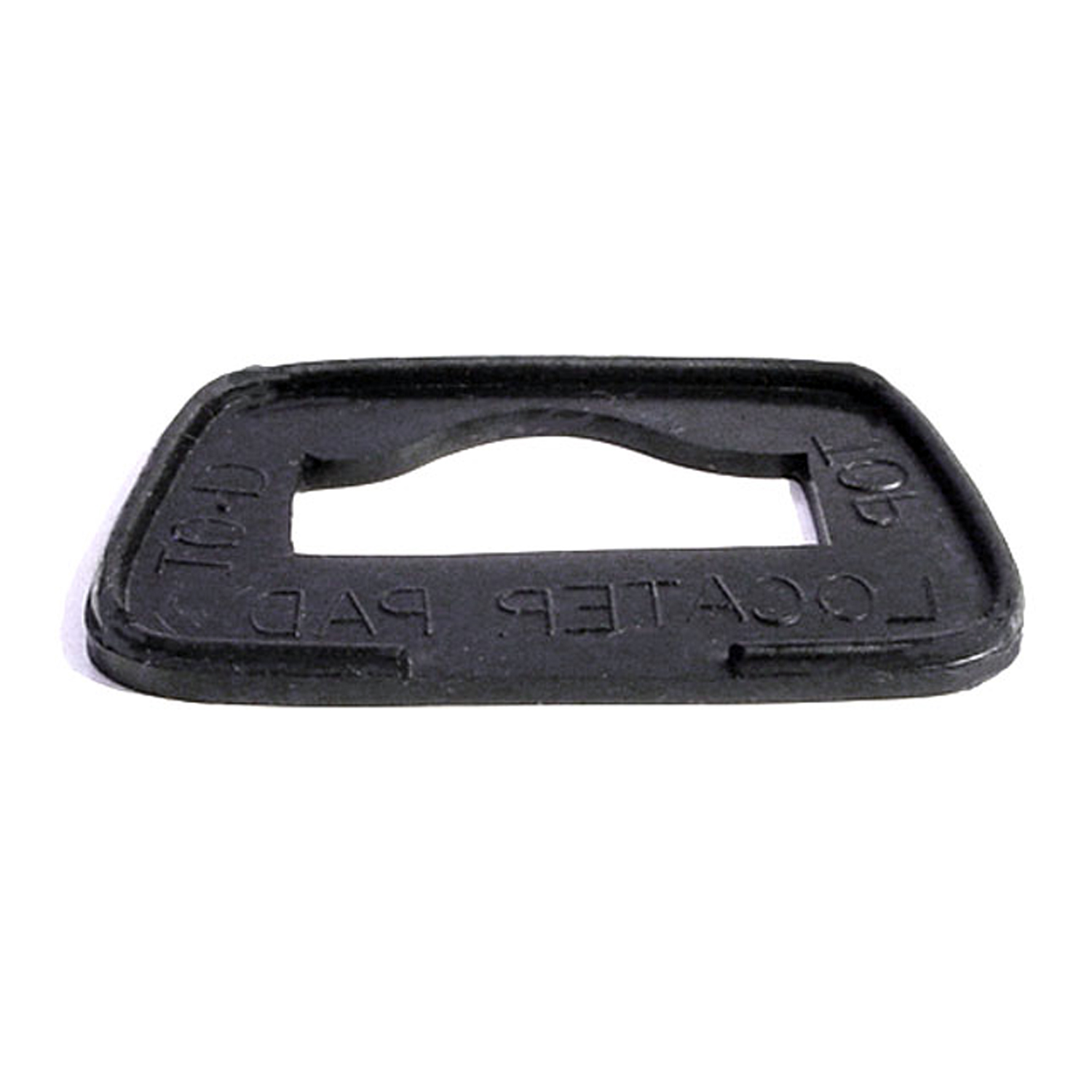 1968 Sunbeam Alpine Top Hold-down Pad. 2-1/2" wide X 1-1/2" long. Each-MP 10-DTop Hold-down Pad. 2-1/2" wide X 1-1/2" long. Each
1968 Sunbeam Alpine Top Hold-down Pad. 2-1/2" wide X 1-1/2" long. Each-MP 10-DTop Hold-down Pad. 2-1/2" wide X 1-1/2" long. Each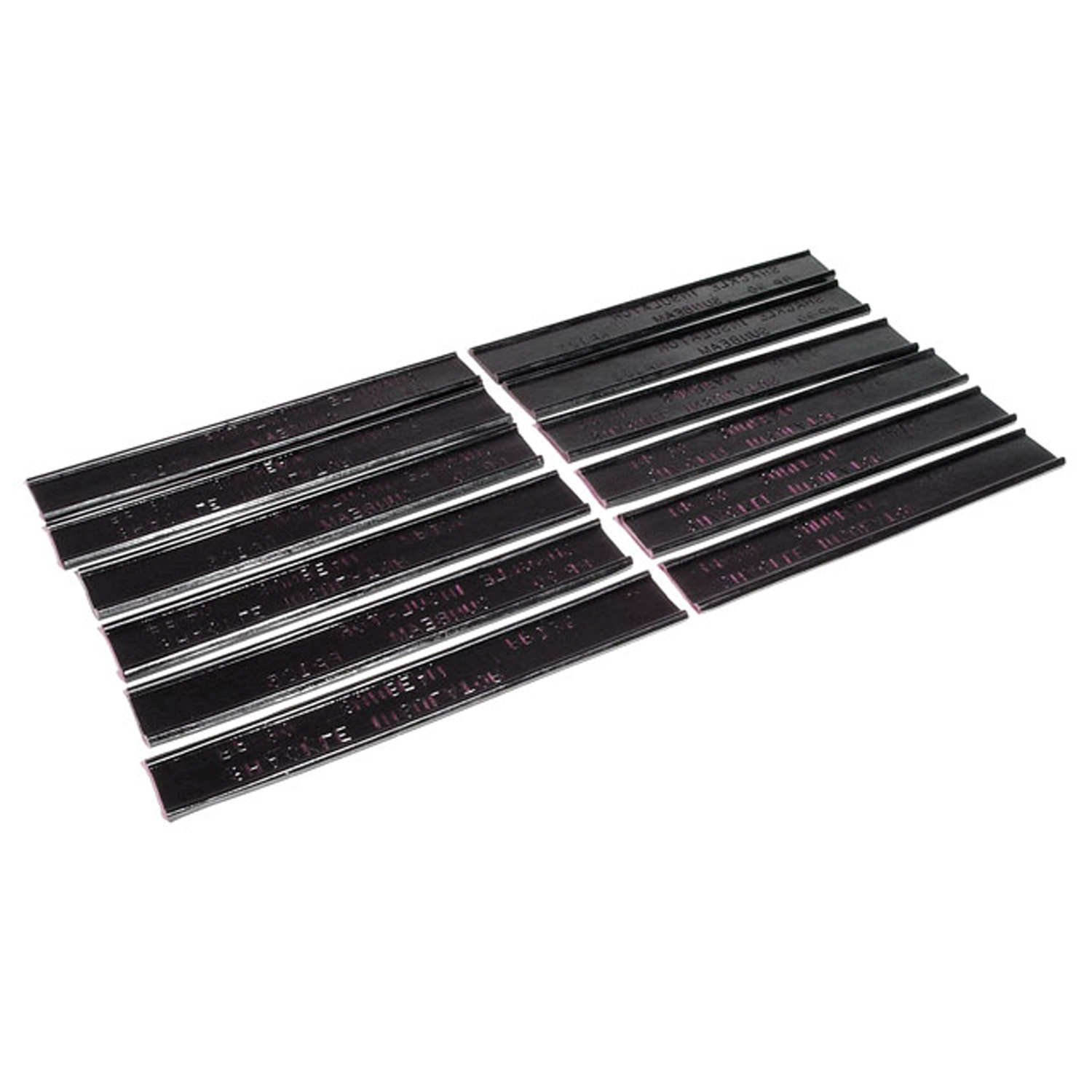 1968 Sunbeam Alpine Spring Shackle Rubber Insulators-RP 125Spring Shackle Rubber Insulators. 1" wide X 6-3/4" long each. 12-Piece Set
1968 Sunbeam Alpine Spring Shackle Rubber Insulators-RP 125Spring Shackle Rubber Insulators. 1" wide X 6-3/4" long each. 12-Piece SetWhy Choose Metro?
For over 100 years, Metro Moulded Parts has been the pinnacle of quality in classic car restoration parts. Our commitment to precision and authenticity in every component ensures a perfect fit and an OEM-level appearance.
- Expert Craftsmanship & Quality: Each part is a testament to our dedication to reliability and perfection, crafted from original designs and thoroughly tested.
- Advanced Technology: We use cutting-edge techniques to create flawless, long-lasting parts that surpass others in performance.
- SuperSoft Sponge – The Ultimate Door Seal: Not only are our door seals 30% softer than competitors', but they're also guaranteed to never leak. They effectively reduce wind and road noise, enhancing your classic car's comfort and driving experience.
- Proudly American: Our parts are a product of American craftsmanship, made in the USA with a spirit of excellence and heritage.
- Unrivaled Warranty: We back our products with a 30-year industry-leading warranty, a testament to our confidence in their quality.
Join us in preserving the legacy of classic cars with parts that are crafted for perfection, not just made.

